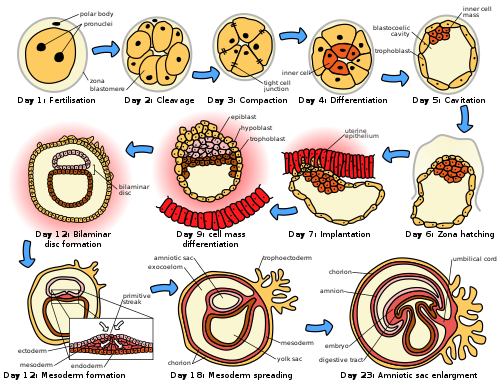Today, Roe vs. Wade was overturned.
It’s almost surreal. From my earliest childhood memories, growing up from the late 1980s to highschool and thereafter, overturning Roe vs. Wade was the one defining, unifying effort of our conservative evangelical household and the local midwestern culture. My mom in particular was a major activist in South Dakota Right to Life and Family Policy Council. I was inundated with endless political propaganda and apologetic arguments against opponents that I had never even met, much less talked to with any degree of sincerity. Phone calls. Marches. Prayer meetings. Bills. Books. Orgs. T-Shirts (see below). Get the vote out.
Overturning this supreme court decision was the equivalent of reaching the Promised Land. Millions of innocent lives would be saved. Someday, in the future, it would come if we fought and prayed hard enough, a “land filled with milk and honey.” What it be like? I couldn’t even imagine. Of course, this wasn’t my dream I had developed, but the dream of someone else that was foisted upon me.
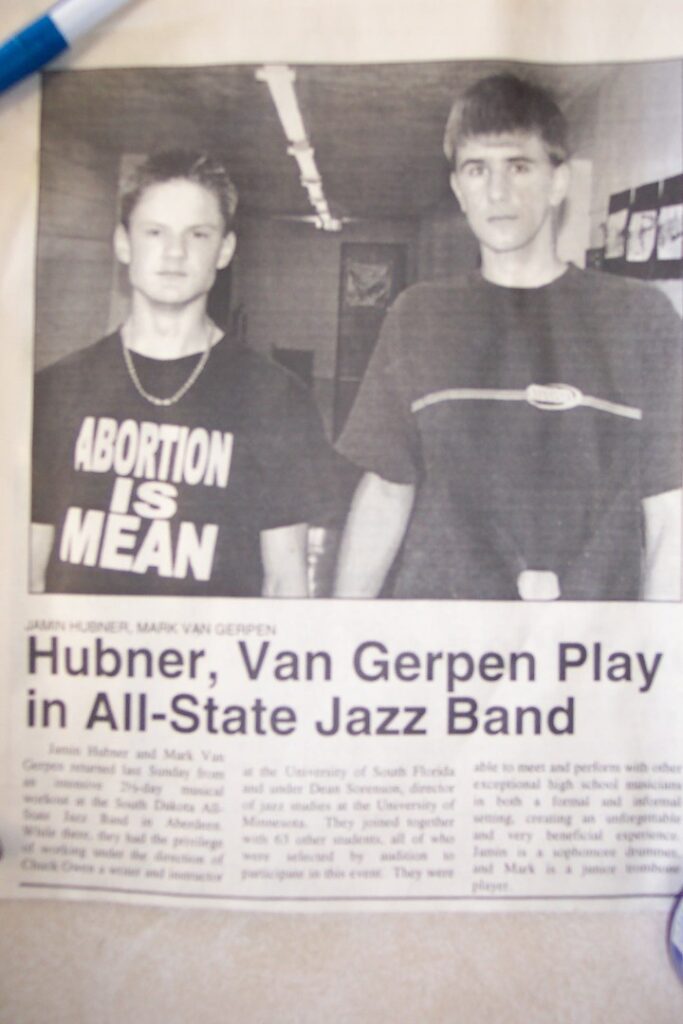
Well, that promised day is today.
And I don’t feel that anyone has reached any kind of paradise at all.
Dimensions
For starters, it’s become clear that ending Roe vs. Wade has nothing to do with reducing abortions. The last ten years has seen the lowest number of walk-in abortions in the United States on record, and Roe vs. Wade was still the law of the land. The data is clear that making abortion illegal does not reduce abortions. It just makes it more dangerous.

Second of all, being a middle class white male, I have been utterly clueless for my entire life that abortion is a normal part of life, that it happens spontaneously millions of times a year, and that it is central to reproductive healthcare. Miscarriages, entopic pregnancies, and a number of other womb-bearing phenomena was something I obviously had no first hand experience about, and still have little knowledge about.
Previous research has found that somewhere between 10 and 20 percent, or as many as 1 in 4 known pregnancies end in miscarriage, also known medically as spontaneous abortion. One study in Denmark, which included 1,221,546 pregnancies between 1978 and 1992, found the overall miscarriage rate was 13.5 percent. Obviously that’s going to vary by region and socioeconomic status, and the risk sharply increases by age. But there’s one other very important qualifier to note: Many women don’t even know they’re pregnant initially; and, since most miscarriages happen in the first 12 weeks of pregnancy, many miscarry without even knowing it’s happening.
Overturning Roe vs. Wade will senselessly endanger millions of women who must be punished for things over which they have little or no control. As The Lancet puts it (one of the most scholarly and respected science publications):
Worldwide, around 120 million unintended pregnancies occur annually. Of these, three-fifths end in abortion. And of these, some 55% are estimated to be safe—that is, completed using a medically recommended method and performed by a trained provider. This leaves 33 million women undergoing unsafe abortions, their lives put at risk because laws restrict access to safe abortion services.
Third, I had no idea that evangelicals were not unified in opposing Roe vs. Wade until essentially it became part of the feminist and women’s liberation movement. As historian Kristin Kobes DuMez explains:
“It is surprising to go back in time — and not that long ago — where there was certainly more of a spectrum of views on abortion. Now, I do want to emphasize that there’s a long history of anti-abortion sentiment in evangelical spaces and in Christian tradition, so it would be wrong to say that evangelicals or that historical Christians were not certainly troubled over the issue of abortion,” she said. “But in the late 1960s, we have this remarkable issue of Christianity Today, the flagship magazine of American evangelicalism, discussing this question of abortion. And the conclusion is that it’s a very complicated moral issue. And yes, the Southern Baptist Convention comes out in favor of opening up access to abortion in many cases in 1971, and then they reaffirmed that in 1974 and in 1976 — so after Roe v. Wade.
But in the 1970s, after the Roe v. Wade ruling, there was a spike in the number of abortions being performed in the United States. “And that causes many Americans, not just evangelicals, to kind of rethink, ‘Is this what we wanted?’ But I think, more importantly, you have the rise of second wave feminism and, in conservative white evangelical spaces, a real backlash against feminism. And over the course of that decade, abortion becomes linked to feminism.”
That linkage is part of the shift in evangelical attitudes, Du Mez explained. “From 1979 on, that’s when you see a real kind of shrinking of space within conservative evangelicalism to have any view on abortion that isn’t strictly and staunchly pro-life; life begins at conception.
Fourth, nobody actually believes “life begins at conception.” If they did, such life would get a name, a social security number, and a hundred other things we attribute to being a person that we simply don’t establish at conception. Acorns aren’t trees. Seeds aren’t tomato plants. And it seems obvious that if life begins at conception because “everything is there,” life begins before conception for the same reason: “everything is there” for life too. Conception is a milestone, yes. The production of sperm and egg is a milestone, sex is a milestone, conception is a milestone, just as the emergence of the first neuron is a milestone, the first heartbeat is a milestone, and just as birth is a milestone. All of this is process. All of it involves some form of “life” (whatever that means). The “life begins at conception” rhetoric is primarily that—a rhetorical strategy used by anti-abortion advocates.
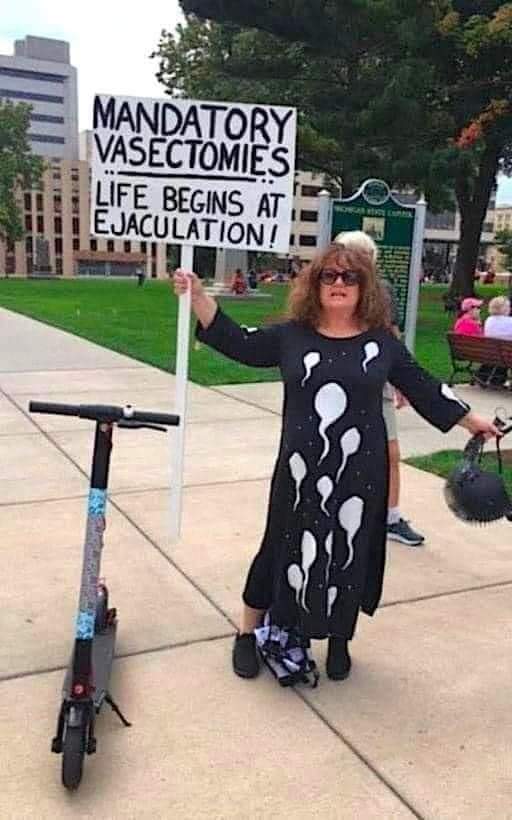
Fifth and most importantly, I only recently learned about abortion as abortion is actually practiced by listening to pregnant people or people who have had abortions. I had never done this. Like virtually everything in conservative evangelical world, I was never exposed to the other side or given the choice to learn about something from multiple perspectives. And despite what Jesus did and taught, we muffled the voices of the marginalized, poor, and vulnerable, instead of giving them a microphone. After all, abortion affects them the most. So why aren’t we listening to them instead of primarily men with social, economic, and political power?
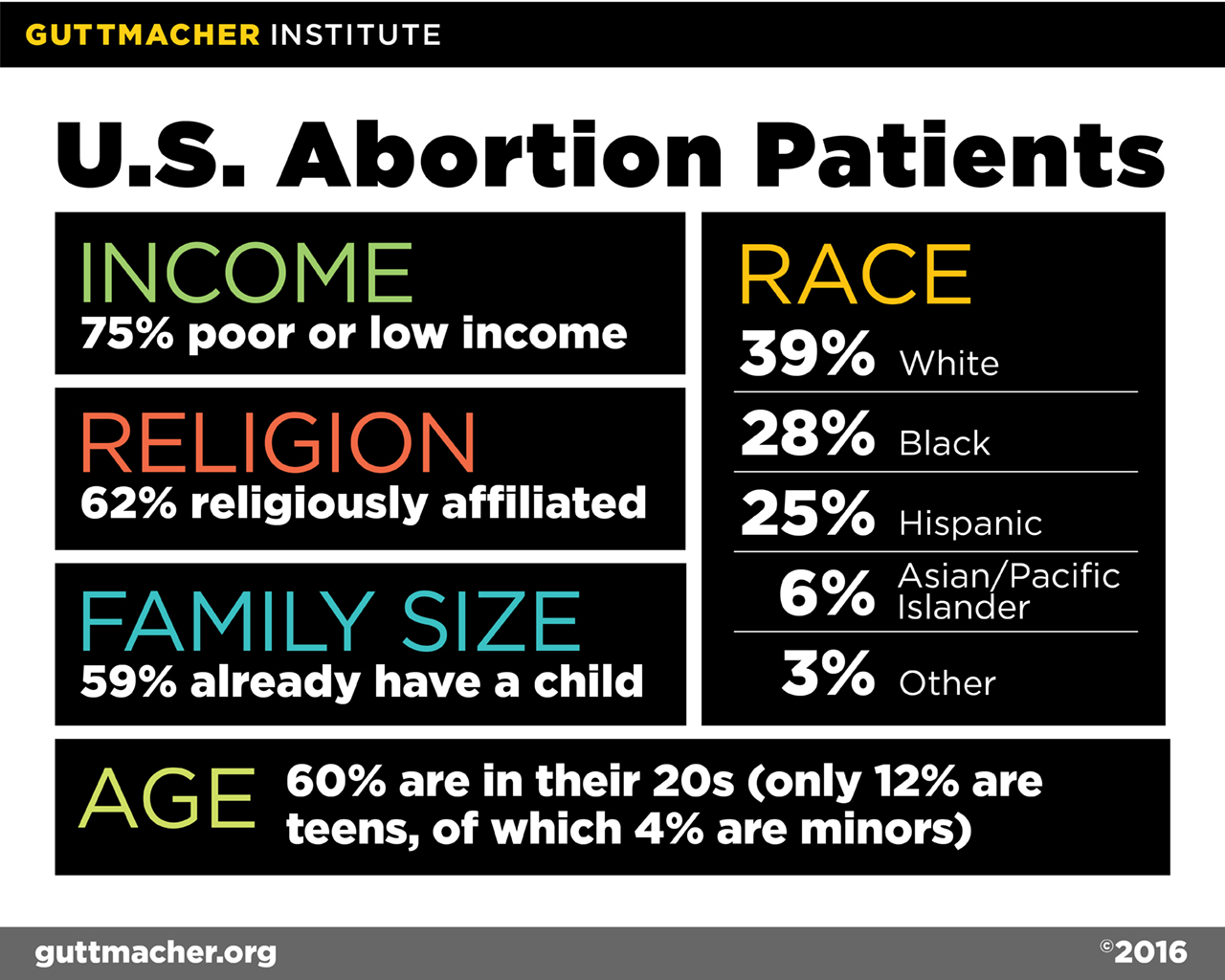

One particular essay (by “Aimie Lynne Jordan,” no idea who she is) expresses my own feelings today, as much as I can have such feelings:
I’m not pro-murdering babies.
I’m pro-Becky who found out at her 20-week anatomy scan that the infant she had been so excited to bring into this world had developed without life sustaining organs.
I’m pro-Susan who was sexually assaulted on her way home from work, only to come to the horrific realization that her assailant planted his seed in her when she got a positive pregnancy test result a month later.
I’m pro-Theresa who hemorrhaged due to a placental abruption, causing her parents, spouse, and children to have to make the impossible decision on whether to save her or her unborn child.
I’m pro-little Cathy who had her innocence ripped away from her by someone she should have been able to trust and her 11-year-old body isn’t mature enough to bear the consequence of that betrayal.
I’m pro-Melissa who’s working two jobs just to make ends meet and has to choose between bringing another child into poverty or feeding the children she already has because her spouse walked out on her.
I’m pro-Brittany who realizes that she is in no way financially, emotionally, or physically able to raise a child.
I’m pro-Emily who went through IVF, ending up with SIX viable implanted eggs requiring selective reduction to ensure the safety of her and a SAFE number of fetuses.
I’m pro-Jessica who is FINALLY getting the strength to get away from her physically abusive spouse only to find out that she is carrying the monster’s child.
I’m pro-Vanessa who went into her confirmation appointment after YEARS of trying to conceive only to hear silence where there should be a heartbeat.
I’m pro-Lindsay who lost her virginity in her sophomore year with a broken condom and now has to choose whether to be a teenage mom or just a teenager.
I’m pro-Courtney who just found out she’s already 13 weeks along, but the egg never made it out of her fallopian tube so either she terminates the pregnancy or risks dying from internal bleeding.
You can argue and say that I’m pro-choice all you want, but the truth is:
I’m pro-life.
Their lives.
Women’s lives.
You don’t get to pick and choose which scenarios should be accepted. It’s not about which stories you don’t agree with. It’s about fighting for the women in the stories that you do agree with and the CHOICE that was made.
Women’s rights are meant to protect ALL women, regardless of their situation!
Overturning Roe does not stop abortions, it stops SAFE abortions!
Abortion is healthcare.
But there are many other dimensions I never considered given my own limited, male perspective:


Abortion is, indeed, about gender. And it is, indeed, about maintaining male power and controlling women’s bodies. This is true however one conceives of the embryo/fetus/life within the bearer. Women’s uteruses are more regulated than AR-15s in the US.
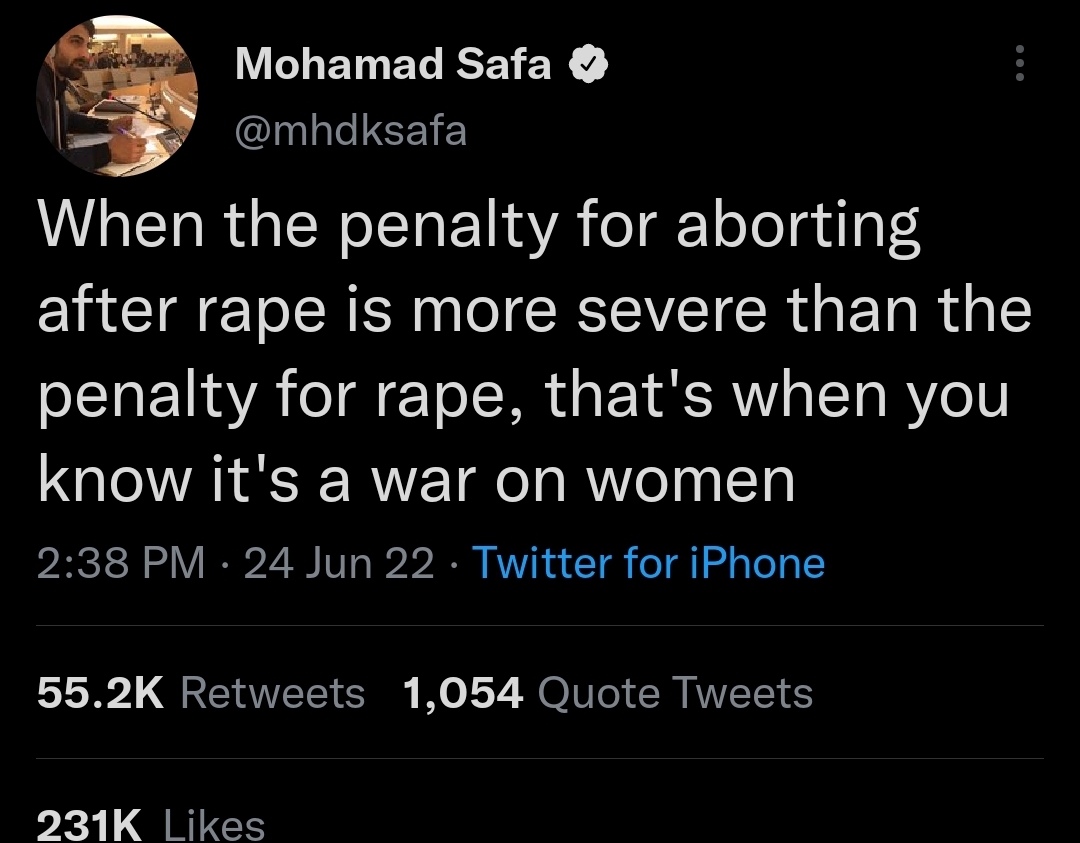

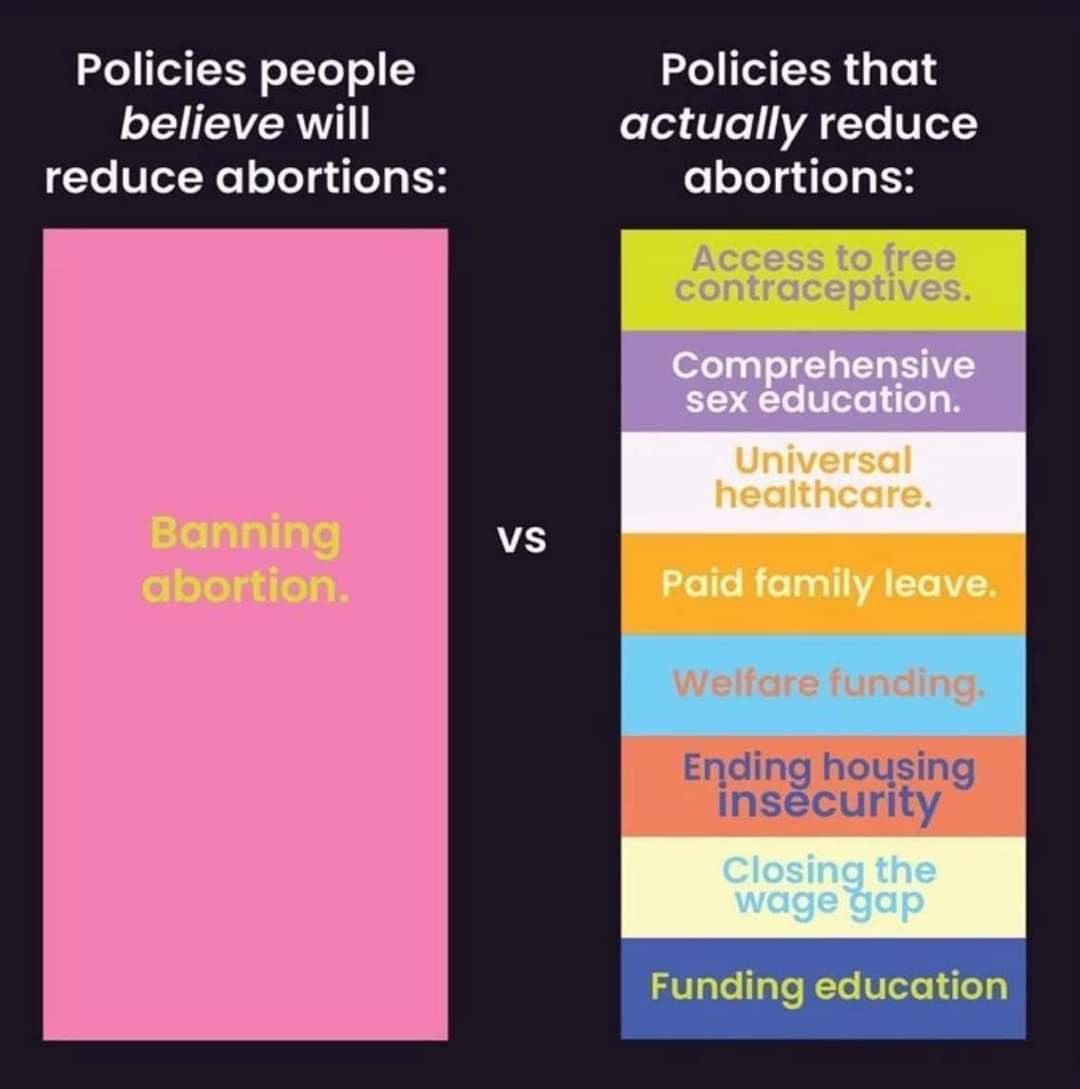

In short, overturning Roe vs. Wade has nothing to do with saving babies from knives or being nice to kids anymore than the Civil War was about “states rights”; it’s about codifying American Western norms of white cishetero patriarchy just as countless other laws and decisions were about. Oh, and in thinking about the race question (which many have published about and I don’t have time to get into), I was reminded of this disgusting tweet by a former “mentor”:
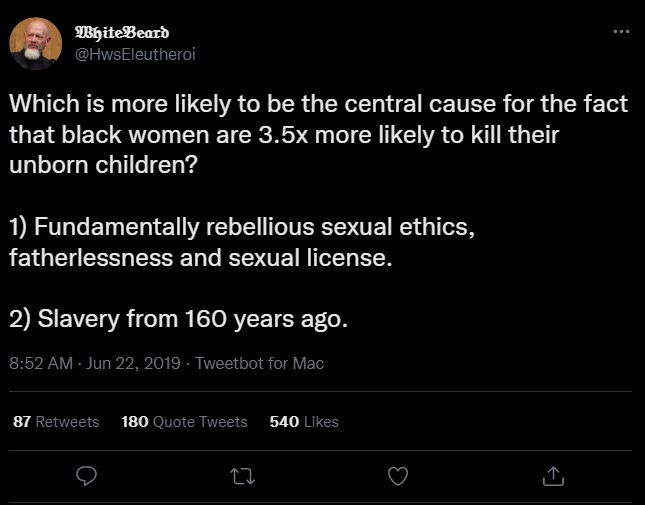
Eighth and finally, the overturning of Roe vs. Wade is another stark reminder that the US is not a democracy. (It was never supposed to be).
- All Supreme Court Justices are unelected. None have been elected by anyone.
- 3 of the 6 supporting Justices committed purgery (lying to congress that they would not overturn Roe vs. Wade during Senate confirmation hearings). They will not face any consequences for lying under oath.
- 5 of the 6 supporting Justices were appointed by a US President who lost the popular vote.
- The vast majority of Americans support abortion (85%).
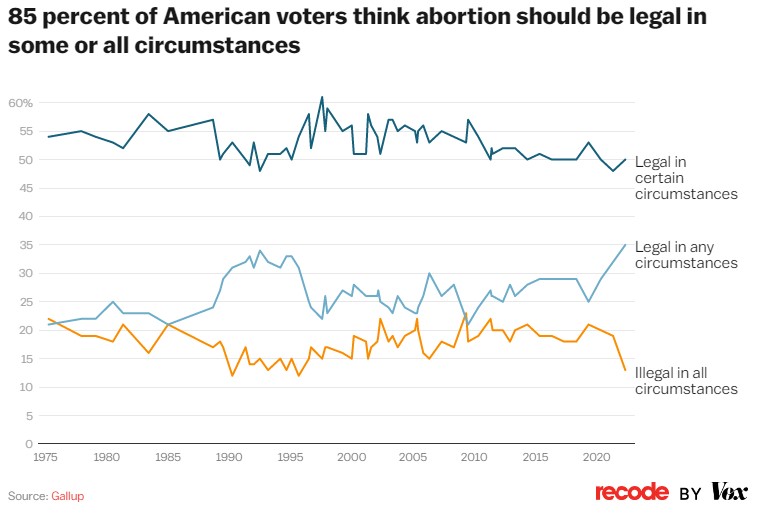
Conclusion
I think many abortions are tragic, and many aren’t. But my opinions on this don’t matter as much as those who bear children, and those are the opinions that really matter on these issues, because that’s who are the most immediately affected. If they’re “pro-choice,” then that’s what I would trust.
Even if none of the above makes sense to you and you want to adopt a kind of libertarian “neutral” or “live let live” perspective, then you still wouldn’t enforce a ban…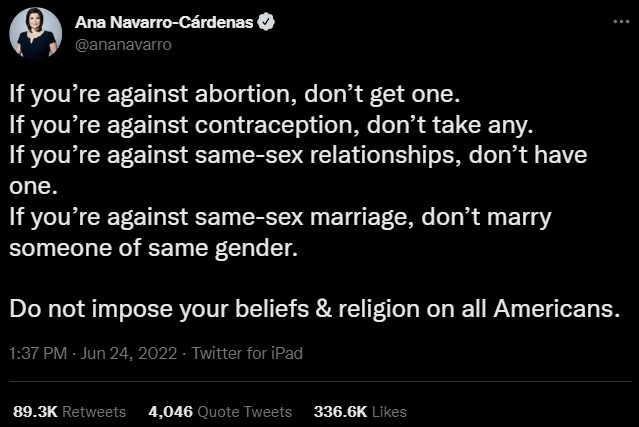
I only recently watched the first Season of The Handmaid’s Tale and read Octavia Butler’s Parable of the Sower. Despite being written decades ago now, they prophetically frame what our world is quickly becoming, at least in the U.S. and in other places where fascism (+theocracy etc.) has made a strong comeback (e.g., India, Russia, Brazil, etc.). The Christian nationalism / Christo-fascism of the U.S. is unique in many ways, however, and I fear lacking mechanisms to hold back are in place and functioning. But organization and effort will surely be required, and worth the effort.
